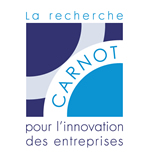Carnot IPGG Microfluidique

The current period poses immense challenges for the society, particularly in the fields of health, energy, access to water and environment. Innovation in these strategic areas require major technological and scientific advances. The Carnot fields, i.e. milli- micro- and nanofluidics, complex fluids under flow and flow chemistry, are at the center of scientific progress to overcome these challenges.
Key figures
Fermer
Key figures
| Permanent staff (full-time equivalent) | 219 |
| PhD Students | 155 |
| Global budget | 29,9 M€ |
| Partnership incomes with industry | 4,4 M€ |
Contact
Fermer
Contact
IPGG Microfluidique Carnot Institute
6, rue Jean Calvin
75005 Paris
France
Michael TATOULIAN
Director
+33 (0)1 44 27 68 18
carnot.ipgg[a]psl.eu

